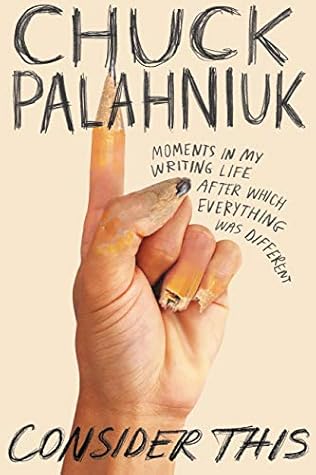More on this book
Community
Kindle Notes & Highlights
Read between
December 12 - December 14, 2021
Using all three forms of communication creates a natural, conversational style. Description combined with occasional instruction, and punctuated with sound effects or exclamations: It’s how people talk.
Granted, most of what you ever write will be description, but don’t hesitate to shift to instruction. Likewise, onomatopoeia shouldn’t be limited to the “pow” and “blam” we see in comic books.
Yes, the Victorians loved to “put a porch” on the front of a novel. For example, “It was the best of times, it was the worst of times…yada yada.” But that’s a tough sell nowadays. My apologies to Nick Carraway, but few people will be hooked by a soy boy’s mansplaining about his self-professed broken heart. These days a good story is more likely to begin with a physical scene—people finding a dead body or being menaced by zombies. Little voice, not big voice. Blame this on movies.
If you were my student, I’d make you create a list of all the quick wordless gestures you use every day. The thumbs-up. The thumb-and-index finger “okay” sign. Knocking your fist lightly on your forehead to “recall” something. Clutching your heart. The hitchhiker’s thumb, which implies “get lost.” The index finger held vertically against the lips for “hush up.” The hooked “come here” finger. I’d make you list at least fifty hand signals. That way you’d always, always be aware of the variety of gestures you can insert into dialogue.
If you create a world where one or both parents have died, you’re creating characters that have survived your reader’s worst fears. Your reader will respect them from the get-go. Even though the surviving offspring might be children or teenagers, their unspoken pain and loss will cast them as adults in the reader’s mind. Plus, from the first page, anything that happens will be survivable because the characters have already survived the worst. A dead parent bonds the surviving family in ways your reader would like to be bonded with his or her family.
This is another reason to bother collecting stories. Because our existence is a constant flow of the impossible, the implausible, the coincidental. And what we see on television and in films must always be diluted to make it “believable.” We’re trained to live in constant denial of the miraculous. And it’s only by telling our stories that we get any sense of how extraordinary human existence actually can be.


